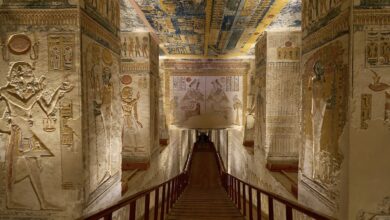A sense of freedom and ownership took over the souls of many Egyptians during and after the revolution of 25 January 2011.
Many returned to Egypt to take part in this historical event that would mark their lives and many hope will change the lives of their children and grand children.
But just who exactly were those who returned?
Dina Tarranissi, an Egyptian living in London, came back home on 9 February. “My mother and my sister live in Egypt and I felt compelled to come back and be with them in these tough times,” says the young woman. Tarranissi is now contemplating moving back to Egypt: “I have to go back to London but I am considering moving back home within the coming year.”
Some wanted to come home to ensure the safety of their families and loved ones, like Adham Abdel Azim, a dentist living in New York. After staying in Cairo for five days working on safety measures for the family house on the outskirts of the city, Abdel Azim returned to the US without taking part in the protests. The young dentist took a huge risk leaving the medical program he is part of, but it was a risk he says he felt he had to take.
Heba is an Egyptian-American who works at Google. “I came home last Wednesday and heard the president’s speech on my way from the airport,” she says. On Friday morning Heba headed to the TV building to join the protesters and then went on to the presidential palace. “I went to Tahrir Square as soon as the president stepped down, to celebrate,” she says.
Her contribution from the comfort of her own living room in the states was not enough, she adds. “Being also an American citizen, I received many warnings about traveling to Egypt," she says, especially after the arrest of her co-worker, Wael Ghoneim. “But I felt stifled being there, away from the most important event in the history of my country,” says Heba. Although she isn't considering moving back to her home country, Heba is proud of the end result.
Mohamed Hamdy arrived in Egypt on 31 January. “Staying in the States, stuck in front of a TV screen, felt like being in prison,” explains Hamdy, an Egyptian who studies and works in New York. Hamdy, who dreamt of becoming a documentary film maker, earlier decided Egypt was not the place to be, especially after covering the presidential elections in 2005. “Building a career in Egypt needed connections and favors and the environment seemed hostile then,” says Hamdy. For him, making reality-based movies seemed impossible in a country that was riddled with lies and fraud.
When asked whether he would now consider staying in Egypt, Hamdy answers in a heartbeat: “I am not even going back to the US.” The sentiments the young man experienced in Tahrir, the food and water he shared with strangers who had the same goal as him, the blanket donated to him to protect him against the cold nights of Tahrir and the rain, are all factors drawing Hamdy back to his beloved country.
Whether spurred on by feelings of worry, ownership, patriotism or simple curiosity, many Egyptians came back home in the last couple of weeks to hold the hands of their family members, loved ones, strangers in Tahrir Square, or the hand of a country whose love has been buried for years.
It seems that we all love Egypt after all, a feeling that many were starting to forget. Welcome back home.




